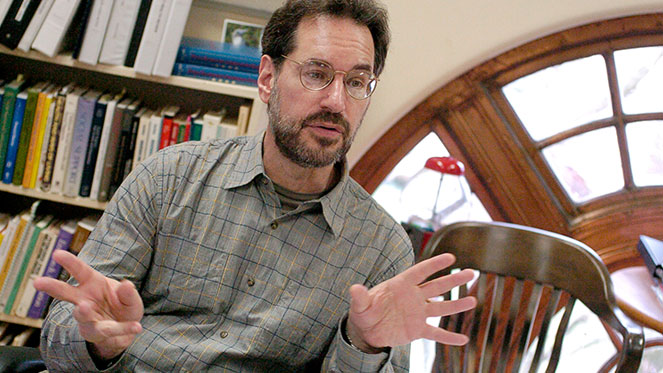A Health and Behavior Powerhouse
By Shilo Rea

Today, we take it for granted that stress and disease are linked and that psychological stress, social networks and socioeconomic status impacts infections, cardiovascular disease and asthma. Much of what we know about these connections between biology and psychology is because of Carnegie Mellon University’s Sheldon Cohen.
Trained in social psychology, Cohen, the Robert E. Doherty University Professor of Psychology, began his career studying the effects of environmental stressors, such as aircraft and traffic noise, on children’s cognition and behavior.
“In the 1980s, I became interested in the role of stress in physical health, particularly through its effects on the immune system,” Cohen recalled. “To pursue my new interest, I needed to expand my knowledge base. I convinced the National Institutes of Health (NIH) to provide me with support to train in immunology, endocrinology and virology.”
The NIH invested well. Cohen was the first to provide scientific evidence that psychological stress influences the immune system in ways that alter susceptibility to infectious disease in humans. He did this by exposing people to viruses that cause the common cold. His systematic work in this area has demonstrated that the longer a stressful event lasts, the greater the risk for developing a cold when exposed to a virus, and that enduring interpersonal conflicts and stress at work are especially potent risks. He has shown that the biological bases for these findings include the effects of stress on the body’s ability to control the release of inflammatory chemicals, and on the shortening of telomeres in immune cells – the caps on the ends of chromosomes that indicate how quickly the cells are aging.
Other noteworthy findings include people who sleep fewer than seven hours a day are nearly three times more likely to catch a cold when exposed to a cold-causing virus; children of lower socioeconomic status grow up to be more susceptible to colds; those with diverse social networks – friends, family and group memberships – and those who regularly report being in a good mood are less likely to get a cold when exposed to a cold-causing virus.
Cohen has also published work on the roles of stress, socioeconomic status, and social ties in the development and progression of cardiovascular disease, pulmonary function and asthma. He developed several scales assessing psychological and social predictors of health, including the Perceived Stress Scale (PSS), which is the most widely used scientific tool to measure the perception of stress.
For all of this, Cohen is not short on accolades. He is a member of the National Academy of Medicine, was named one of the 100 Extremely Eminent Psychologists of the Modern Era and has received the top psychology professional awards. He is also one of the few psychologists who frequently publish in mainstream medical journals such as JAMA and NEJM.
Yes, Cohen teaches in addition to all of his research – and he calls it one of his favorite parts about working at CMU.
“Our undergraduates are a joy to teach. They are excited about science and often surprise me with their insights. My graduate students and post docs have been colleagues as well as students. Most go on to do work that makes me proud that they were trained at Carnegie Mellon,” he said.
Sarah Pressman, now an associate professor of psychology and social behavior at the University of California, Irvine, was Sheldon's graduate student while she was getting her master’s and doctoral degrees in social, personality and health psychology at CMU. Their work focused on how positive emotions foster better physical health.
“I couldn’t be more grateful for the mentoring that I received from Sheldon,” said Pressman (DC’02, ’06). “He made me the scientist that I am today and he continues to inspire the entire field of health psychology with his stellar research contributions.”
One thing that is certain is that there will be more to come from Cohen. He is still publishing results from his landmark cold studies - most recently, he found that hugs protect against the increased risk of infection among participants experiencing stress and that self-ratings of health from adults selected by thorough physical examinations for their “good” health predict immune response to the common cold.
“One current focus of our lab is to identify specific behaviors that influence our feelings of being supported and of belonging to a community, feelings we have found to be important for our health,” Cohen said.
In the meantime, you can find Cohen in his Baker Hall office that he loves. He’ll most likely be well-rested and cold-free because he does try to follow his own research advice and sleeps about seven-to-eight hours each night.